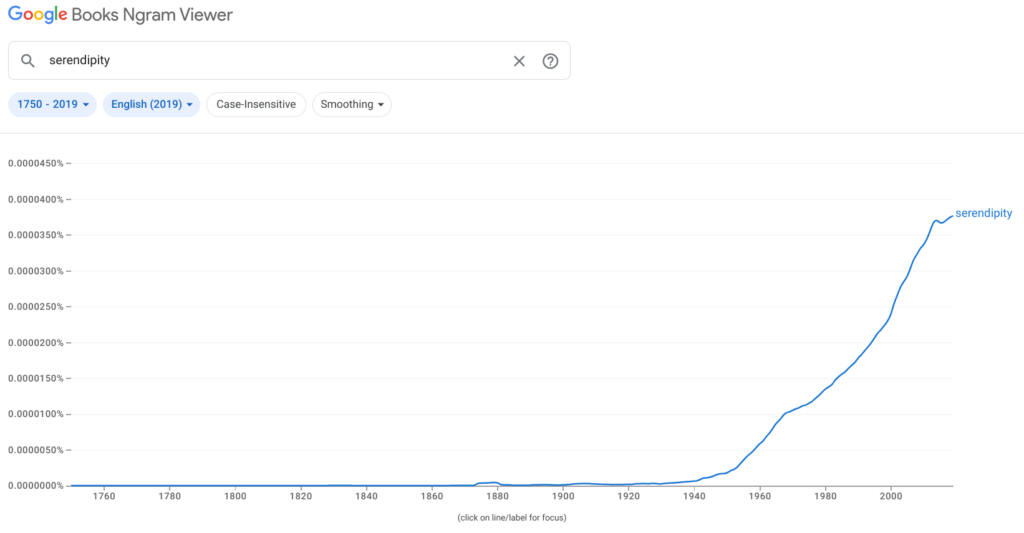In addition to helping spawn the Gothic revival Horace Walpole captured one of my favorite experiences when he coined the word ‘serendipity’. It looks like it’s a word that didn’t really catch on until the latter half of the 20th century.

In a letter to his cousin he notes he has an unusual and particular kind of good luck finding just what he’s looking for.
“This discovery, indeed, is almost of that kind which I call Serendipity, a very expressive word, which, as I have nothing better to tell you, I shall endeavor to explain to you: you will understand it better by the derivation than the definition. I once read a silly fairy tale, called “The Three Princes of Serendip”: as their Highnesses travelled, they were always making discoveries, by accidents and sagacity, of things which they were not in quest of.”
The OED defines serendipity: “The faculty of making happy and unexpected discoveries by accident. Also, the fact or an instance of such a discovery.”
Walpole’s attitude about serendipity reminds me of the Wilson/Dick coinage of metanoia as the irrational belief that the universe is out to help you, similar to Rob Brezsny’s use of pronoia as a fundamentally friendly universe giving you what you need when you need it. Wilson, Dick, and Brezsny are all looking for an opposite to paranoia.
I think this Walpolian mindset, the kind that can coin a word like serendipity and can start a novel with a giant helmet falling from the sky, was an important part of Otranto but was lost as the Gothic genre developed.
And I must say, I wasn’t expecting to broaden my understanding of the abderitic when I started this Gothic research, but I think I found an abderitic patron saint.
On a few occasions Walpole signed himself as Democritus in his letters, donning the cloak of the laughing philosopher. Democritus is another, perhaps the first, patron saint of the aberitic, actually being from Abdera. And, while the humorless Kant may have tut-tutted those who see the human experience as a comedy, Democritus saw the human experience as something to laugh about.

Speaking of serendipity, I read this post this morning from the brilliant Chandrasekera.
https://vajra.me/2024/01/25/walpolitics/
What a coincidence! And what a different take on Walpole. I love this definition of appropriation:
“the refusal to assign agency or ability to the subaltern actor where it is due, where this refusal is framed as disbelief, mockery, or even pity, and thereby reiterating hierarchy.”
Thanks for the link. And now I’m adding a bunch of Chandrasekera’s stories to my stack of stories to read.